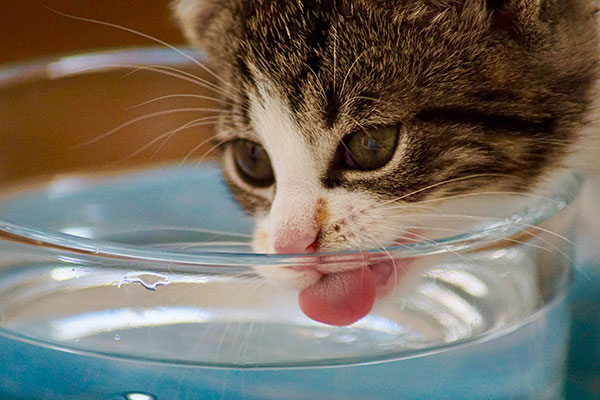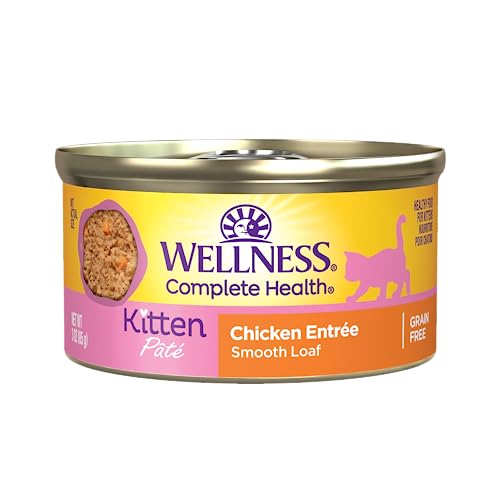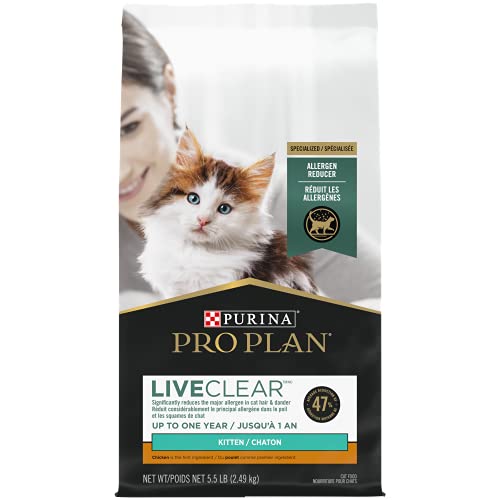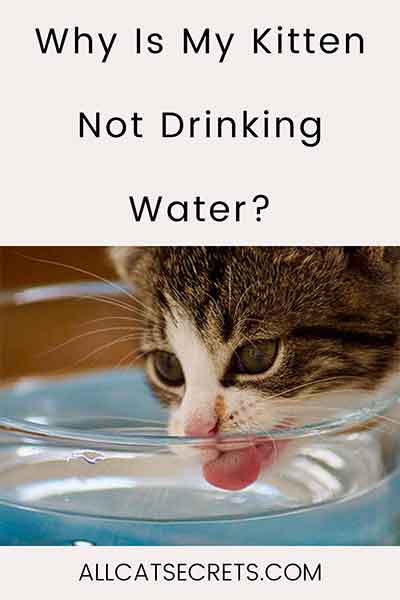Cats have a notorious reputation for being fussy eaters and drinkers. However, drinking sparingly is perilous enough for adult cats. So, when this behavior involves kittens, you can bet the consequences will be even grimmer.
But what are the reasons a kitten won’t drink water?
The most straightforward reason your unweaned kitten is not drinking water is that he’s getting most of his hydration from his mother’s milk or bottle-fed formula. Kittens who have already been weaned may not drink water if they frequently eat wet cat food.
But as you shall find out, there are plenty of other reasons your kitten could refuse to drink water.
If you’ve owned or lived with a cat long enough, it’s only a matter of time before you ask, ‘my kitten is not drinking water like he did before, should I be worried?’
Well, this article is for you. We’ve researched and compiled some of the top reasons kittens don’t drink enough water. The article shall also address common dangers associated with dehydration and what you can do to keep your little furballs hydrated at all times.
Table of Contents
Understanding Kittens and Water
After being given birth to, a young mammal takes a considerable duration before it can be weaned. This period varies from one animal to another. Weaning in humans typically starts from six months and continues until the baby’s immunity is fully developed, which is around six years. On the other hand, cats can be weaned from as little as four weeks old.
Like all mammals, kittens will rely exclusively on their mother’s breast milk before they’re weaned. During this period, your young, adorable feline friends will generally not drink water. That’s because they’re receiving much of their hydration from their mother’s milk.
The same logic applies to orphaned kittens younger than four weeks or those who cannot access their mother’s breast milk for one reason or another. This category would rely on bottle-fed formula before proper weaning commences.
However, the fact that a kitten is under four weeks doesn’t mean he can’t or shouldn’t drink water. In fact, veterinary officers recommend supplementing your kitten’s breast milk or bottle-fed formula with small amounts of water even before the animal is weaned. And when the weaning finally happens and a kitten can now eat solid foods, his water intake should also increase.
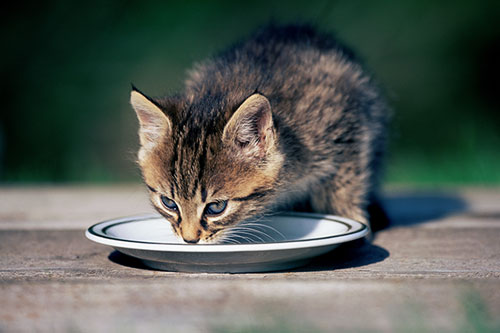
When Should A Kitten Start Drinking Water?
One of the frequently asked kitten-related questions is, ‘I have an 8-week old kitten and it doesn’t drink water, could there be a problem with my cat?’
There are several reasons why your 8-week old kitten is not drinking water. But one of the best ways to address this question is by understanding how early a kitten can drink water.
Now, kittens can comfortably drink water as soon as they’re weaned. And the ideal age for weaning kittens is about four weeks.
But as we’ve already pointed out in the previous section, there’s no harm giving water to your kitten before the animal is weaned. Water can go a long way in supplementing a kitten’s hydration needs. You only need to exercise some moderation, bearing in mind that too much water could cause a laxative effect.
So, is a 10-week old kitten not drinking water a normal occurrence? And what about a 6-week old kitten? Is it okay that my 6-week old kitten is not drinking water?
It’s not normal for a 6-week old kitten not to drink water. Neither is it okay for your 10-week old kitten to exhibit the same behavior. Remember that kittens should be able to drink water comfortably when they’re four weeks old or even earlier. Therefore, a 10- or 6-week old kitten not drinking water should definitely sound some alarm bells.
- High protein formula, with real chicken as the first ingredient
- DHA, an omega-3 fatty acid, nourishes brain and vision development
- Calcium, phosphorus and other minerals build strong bones and teeth
Last update on 2024-07-22 / Affiliate links / Images from Amazon Product Advertising API
Why Is My Kitten Not Drinking Water?
The most straightforward reason your kitten is not drinking water is that the animal is perfectly hydrated. There are four possible reasons why that could be so.
First, your kitten could be receiving his hydration from his mother’s breast milk. This mainly applies to kittens that are yet to be weaned.
Secondly, the kitten could be receiving enough hydration from his bottle-fed formula. This is common with kittens that have not been weaned but who may not access their mother’s breast milk for one reason or another.
Thirdly, your kitten might not be drinking enough water because he’s getting his hydration from his diet. Cats who consume wet foods frequently tend to have lower thirst drive than those who regularly eat dry cat food. The moisture in wet cat food can quench your kitten’s thirst, thereby reducing his drinking frequency. And that’s precisely why a kitten won’t drink water but eats wet food.
Lastly, it’s possible to misjudge your cat with regard to his eating and drinking behavior. That’s because cats are generally crepuscular (active at dawn and dusk), whereas humans are naturally diurnal. In other words, your kittens will be more active when you’re least paying attention to them. So, they could just be drinking enough water behind your back.
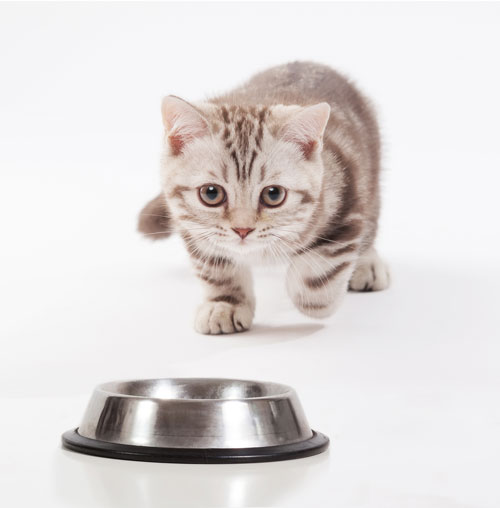
If you ever discover that your kitten is not drinking water but eating alright, the chances are that the animal is receiving his hydration needs from somewhere. That begs the question, is it normal for kittens to not drink water?
Based on the four reasons listed above, it appears normal for kittens to not drink water. But as you’re about to find out, the problem of a kitten not drinking enough water depends on a host of other factors, including the animal’s activity levels and overall health condition.
The following are additional reasons why kittens don’t seem to drink enough water;
1. Weak Thirst Drive
Cats are not a huge fan of drinking. Therefore, one reason for a kitten not drinking enough water is that the animal simply has a weak thirst drive.
Note that cats are historically jungle animals. Before domestication by man, the housecat got most of his moisture from the blood of his prey.
A full meal of rodents or birds supplied the cat with all the moisture he required. Hence, the animal did not need to drink.
2. Low Activity Levels
Unlike their common housemates – dogs – cats are generally inactive creatures. Cats spend up to two-thirds of their day sleeping and a huge portion of their waking hours grooming themselves.
Since cats are naturally inactive animals, they don’t lose too much water through exercise. That’s why your kittens may not seem to drink as much as they should.
3. Routine Changes
Cats are habitual creatures. A subtle change in their routine is sometimes all it takes to knock them off balance.
Common routine changes that could interfere with your cat’s eating and drinking behaviors include;
- Moving homes
- Home renovation
- An addition to the family (whether it’s a new baby, a human visitor, or a new pet)
- Changing a cat’s feeding hours or spots
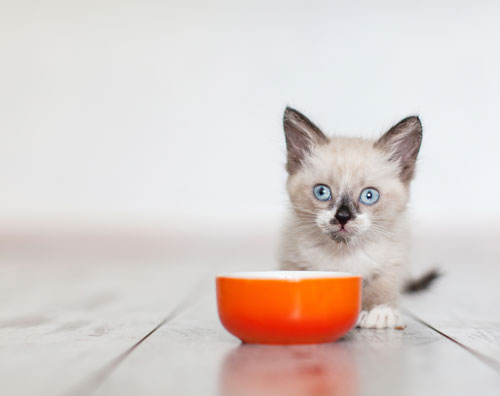
4. A New Cat
Cats take a considerable amount of time to acclimatize to their new environments. During this period, they’ll need to discover their playing patches, scent-mark their new home, and establish hierarchies (if there are additional cats or other pets in the household).
Therefore, a possible explanation behind a new kitten not drinking water is that the cat is yet to familiarize himself with his new surroundings.
5. Problems with the Bowl
There are numerous issues with a kitten’s water bowl that could make him avoid using it. Examples include;
i. Dirty Bowl
Cats are unarguably the cleanest of all house pets. These animals are known to lose interest in their food or water at the first sight of a dirty bowl.
Since cleanliness is a cat’s inherent trait, it’s also the reason your kittens may refuse to drink from their water bowl.
ii. Unpleasant Bowl Appearance
Some cats may be choosy about the shapes and colors of the bowls they drink from. If a bowl looks more like a toy than a water reservoir, your kitten may opt to play with the bowl instead of using it for the intended purpose.
iii. Wrong Bowl Size
Kittens will not drink from very small or very deep bowls. That’s because such bowls can irritate the cat’s sensitive whiskers, causing him discomfort.
iv. Wrong Bowl Position
A kitten may not drink from a water bowl located in an open spot with too much foot traffic. Instead of risking getting trampled, the cat will choose to look for water elsewhere.
Similarly, kittens will avoid water bowls located in places where they’re likely to run into other dominant cats. It’s their intelligent way of averting possible confrontations with other cats in the household.
Still on bowl position, note that cats do not like their drinking water placed too close to their food. They prefer eating first and then go looking for the bowl elsewhere.
- CONTAINS: This pack of Delectables Bisque contains twelve (12) 1.4-ounce lickable cat treats.
- CATS LICKS THE BOWL CLEAN: These bisque cat treats combine tender chicken or succulent fish with a smooth and satisfying sauce for...
- TASTY TEXTURE FOR CAT TREATS: The meat and sauce are entangled in this tasty wet texture, ensuring your kitty eats the whole cat...
Last update on 2024-07-22 / Affiliate links / Images from Amazon Product Advertising API
6. Problems with the Water
It could happen that a cat’s bowl is perfectly okay but your kittens still don’t seem to drink enough water. In such cases, the problem could be with the water itself.
Here are a few issues with a cat’s water that might cause the animal to avoid it;
i. Dirty Water
The same way a cat will avoid a dirty water bowl is the very way he will shy away from dirty water. This has everything to do with felines’ reputation for cleanliness.
ii. Unpleasant Water Smell or Taste
A kitten will also avoid water that exudes an unpleasant taste or smell. That’s especially for water flavored with ingredients that cats naturally find repulsive.
iii. Unfavorable Water Temperature
Cats prefer their water at room temperature. Therefore, a kitten will not comfortably drink too cold or too hot water.
iv. Stagnant Water
Cats have a low tolerance for stagnant water. In a cat’s world, still water translates to dirty water.
The fact that water bowls generally contain stagnant water explains why some kittens may not drink it.
7. Problems with a Cat’s Mouth
A kitten with a cracked jaw or sore gums may not eat or drink as much as he should. The same is true for cats with periodontal diseases. Such cats avoid drinking water because it only adds to their pain.
8. Underlying Medical Conditions
Any disease resulting in appetite loss will cause your cat to lose interest in water. These generally include conditions that present gastrointestinal symptoms like nausea, vomiting, diarrhea, and abdominal discomfort.
Endocrine issues, such as kidney and liver disease, may also cause your kitten to avoid drinking water. Kidney disease is particularly interesting, as the condition can initially cause an increase in water intake in a cat. But with time, the cat will stop drinking.
Other medical issues that may diminish a cat’s urge to drink include giardia, pancreatitis, and cancer.
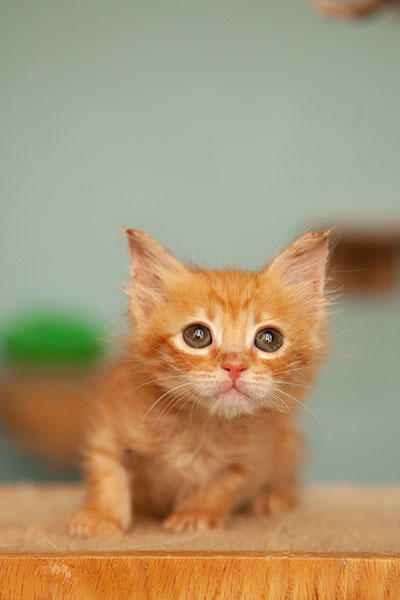
How Long Can A Kitten Go Without Drinking Water?
Kittens and cats in general can go a couple of days without food. However, a kitten shouldn’t last longer than 24 hours without water or other fluids.
Going longer than 24 hours without drinking could trigger dehydration in kittens. And without urgent medical interventions, the affected cat could die. Therefore, it’s important to act swiftly if you suspect that your kitten could be dehydrated.
There are several measures you can take to mediate dehydration if the situation hasn’t gone out of hand. Otherwise, your best bet would be to schedule a visit to your vet.
It’s also worth pointing out that the actual period a kitten can go without water ultimately depends on several other factors, such as the cat’s diet and activity levels. For instance, kittens on regular wet cat food will go longer without drinking water than those on dry foods.
Similarly, active kittens will drink more often to replenish the water lost from their bodies through sweating than their inactive counterparts.
How Do I Know If My Kitten Is Dehydrated?
We’ve just reiterated the importance of seeking urgent medical attention if you suspect that your kitten could be dehydrated. But you’re probably wondering how to tell that a cat is dangerously dehydrated.
The following are some of the tell-tale signs of dehydration in cats;
- Constipation, usually characterized by hard stools that are difficult to pass
- Polyuria or frequent urination
- Reduced skin elasticity
- Reduced capillary refill times – the duration it takes for blood to fill the capillaries after pressing them
- Dry mouth
- Thick saliva
- Dry and/or sunken eyes
- Pale, dry, or sticky gums
- Lethargy, often marked by low activity levels
- Elevated heart rate
- Low appetite
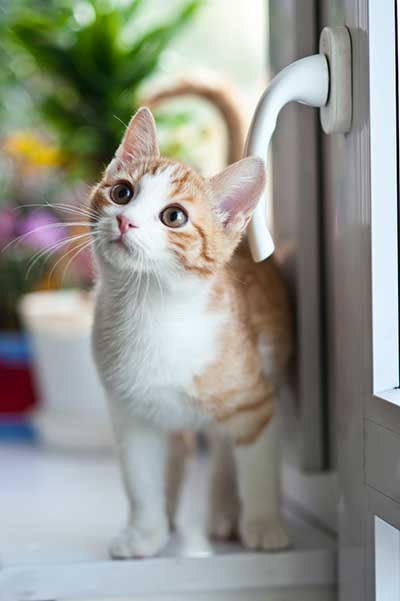
Other Causes of Dehydration in Kittens
Reduced water intake isn’t the only cause of dehydration in kittens. The condition could also result from several other triggers. Common ones include;
- Gastrointestinal issues, particularly persistent vomiting and diarrhea
- Sicknesses that decrease appetite
- Blood loss, either directly from fresh wounds or triggered by certain diseases
- Chronic conditions like kidney failure, diabetes, liver failure, and most cancers
- Hyperthyroidism
- Fever
- Heatstroke
- Shock
- A consistent diet of dry food
How to Get My Kitten to Drink Water
We’ve gone over several reasons that could prevent a kitten from drinking enough water. Your next question probably is ‘how can I get my 8-week old kitten to drink water?’
The good news is that there are multiple ways to get, not only your 8-weeks old kitten, but any kitten to drink water.
So, how can I encourage my kitten to drink?
Listed below are the various tips and tricks to get your kitten to drink more water. As you shall find, each solution addresses specific causes;
1. Switch From Dry Cat Food to Wet Food
Wet cat food is rich in moisture that can benefit fussy drinkers. In fact, one of the primary reasons veterinary officers recommend wet foods over dry foods is that the former contains incredibly rehydrating properties.
However, be mindful of the ingredients in wet cat foods that you plan to give to your kitten. That’s especially true for store-bought wet foods. Ensure the product is free from compounds known to be toxic to cats, such as salts and spices like onion and garlic.
Alternatively, you can feed your kitten a balance of dry and wet cat food provided that you make alternative provisions for rehydration.
Common avenues you might explore include giving the cat broth or flavoring his drinking water with cat-friendly compounds like catmint.
- GRAIN-FREE WET KITTEN FOOD: This canned cat food is complete and balanced, free from grains, protein-dense, rich in meaty flavor,...
- CHICKEN ENTREE: This natural food for kittens is an excellent source of high quality proteins, packed with vitamins, minerals, and...
- SUPPORTS HEALTHY HYDRATION: Wet food is an easy way to increase your cat's moisture intake for daily hydration health. We...
Last update on 2024-07-22 / Affiliate links / Images from Amazon Product Advertising API
2. Fix the Bowl Problem
There are multiple ways you can fix your kitten’s water bowl to make it more appealing to the cat.
First off, begin by getting the right bowl size, shape, and color. A simple online search will reveal plenty of cat bowl preferences.
Secondly, place the bowl in a suitable location. Choose a spot where your kittens feel most comfortable drinking from. If there’s more than one cat in the household, consider buying several water bowls and placing them in different spots within the house. This will allow the skittish cats to drink safely away from their dominant housemates.
Also, ensure your cat’s water bowl is clean at all times. The conventional wisdom is to clean the bowl two to three times a day. In the same breath, replace the water frequently enough to encourage drinking.
Last but not least, place a cat’s drinking bowl at least six feet from his food.
- Less Vomiting: The tilted cat bowl keeps food piled nicely or falls to the center, it helps the cat easy to get his food, and...
- Reduces Neck Strain: The elevated cat food bowl allows cats to eat or drink in a more correct position for comfort. Suitable for...
- Measuring Marks & Improved Eating Habits: You could keep track of how much water the cat is drinking and how often. Easy to...
Last update on 2024-07-22 / Affiliate links / Images from Amazon Product Advertising API
3. Fix the Water Problem
As you take care of a kitten’s water bowl, also give due consideration to the water in such bowls. For starters, the water should remain clean at all times. So, endeavor to change it frequently enough (preferably once every four hours).
Secondly, avoid serving your cat water that gives off an unpleasant taste or smell. Besides, the water should be at room temperature or thereabout. And since cats associate stagnant water with dirty water, you might consider switching from a regular water bowl to a water dispenser.
The good news is that there are tons of cat water dispensers you can experiment with. One such product is the Mosproer Wet Fountain Cat Water Dispenser.
This product features an electric water bowl that comes complete with two replacement filters. It includes a super-silent pump that allows your kitten to drink without getting spooked. And with its 2W low power consumption, the device can service your cat for up to 10,000 hours without needing replacement.
- [FUN & 68OZ LARGE CAPACITY] No need to replenish water frequently and it can not only meet the drinking needs of cats, dogs, birds...
- [ENVIRONMENT-FRIENDLY MATERIAL] Made of finely polished PP resin material, this automatic water bowl is BPA-free, and obtains...
- [SUPER SILENT & LOW CONSUMPTION] With the super silent pump, you can hardly hear the sound of water, which does not affect you and...
Last update on 2024-07-22 / Affiliate links / Images from Amazon Product Advertising API
4. Go Slow On Routine Changes
You cannot entirely avoid routine changes in your home. But you can make the processes easier on your kitten by taking them slow.
Instead of moving apartments suddenly, why not take your kitten on a tour of your soon-to-be new home first? That will allow the cat ample time to acclimatize to the new surroundings.
5. Visit the Vet
If everything else fails despite your best efforts, then you know it’s time to visit the vet.
Now, it’s important to know when you should take your kitten to the vet for a checkup. Ideally, that should be when the symptoms of dehydration threaten to get out of control.
For instance, you might consider taking your cat for a professional examination immediately if the animal won’t drink even after 24 hours.
Other accompanying symptoms like vomiting and diarrhea are all the more reasons to schedule a visit with your vet immediately.
The vet will perform certain diagnostics and determine whether your kitten is suffering from any oral condition or underlying disease preventing him from drinking.
How Much Water Should A Kitten Drink?
The above-listed tips will go a long way in making your kitten drink water normally. But how much water should a kitten drink in ml?
How you answer this question will help you determine whether your kitten is drinking normally or not.
Now, cats require between 3.5 and 4.5 ounces (103.5 to 133 milliliters) of water for every 5 pounds of body weight per day. By way of illustration, a 10-pound cat will need to drink 7.0 to 9.0 ounces of water every day.
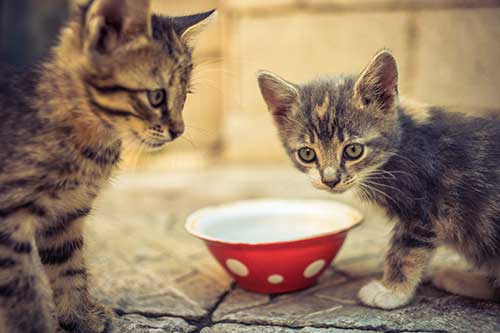
Two commonly asked questions regarding kittens and water are – ‘how much water should a 2-month old kitten drink’ and ‘how much water should a 3-month old kitten drink?’ Some cat owners also tend to wonder, ‘how much water should a 10-week old kitten drink?’
As we’ve just seen, bodyweight constitutes the primary formula for calculating the amount of water a kitten can drink. Note that a 3-month old kitten may weigh less than a 2-month old kitten. And that’s precisely why age generally counts for nothing when determining the amount of water to give to your kitten.
But all other factors held constant, older kittens should drink proportionately more than their younger counterparts.
Can I Feed My Kitten Milk Instead Of Water?
One commonly raised concern regarding kittens and drinking is, ‘my kitten won’t drink water, only milk. Should I be worried?’
Milk is a popular rehydrating agent. So, as a cat’s owner, you may often toy with the idea of giving milk to kittens that don’t drink frequently enough.
But is it a great idea to feed milk to kittens?
Younger kittens can safely consume milk. However, older kittens should avoid milk and other dairy products. That’s due to the risks of lactose intolerance.
Lactose intolerance is a medical condition resulting from consuming lactose-containing products. Lactose is a simple sugar commonly found in dairy products. The sugar is broken down by an enzyme called lactase. Note that a kitten’s body is able to produce lactase. But that ability diminishes as the cat ages. And that explains why older kittens should avoid milk and other dairy products.
Common symptoms of lactose intolerance in cats include;
- Nausea and vomiting
- Appetite loss
- Diarrhea
- Dehydration
- Abdominal pain and discomfort
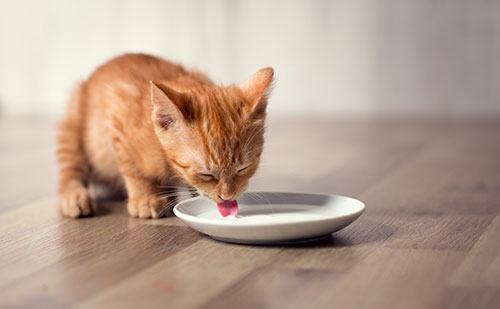
Can I Force My Kitten To Drink Water?
Water performs several crucial functions in an animal’s body. It aids food digestion while also helping to flush out toxins from the kidney.
Water also lowers the risks of numerous medical conditions, including bladder stones and kidney disease. Besides, it supports blood circulation and helps maintain normal body temperature. In fact, all vital organs need water to function optimally.
Therefore, it’s important to ensure your kitten achieves his recommended daily water intake. Unfortunately, that may often mean forcing the animal to drink.
However, tread with caution while attempting to force your kitten to drink. Your best bet would be to encourage drinking naturally by implementing the tips we’ve highlighted earlier on. In the case of acute dehydration, consider taking the animal to the vet for more intensive care.
- Purina Pro Plan LiveClear Dry Kitten food is the first and only kitten food that reduces cat allergens by safely neutralizing Fel...
- Discovered through over a decade of research, Purina Pro Plan LiveClear dry kitten food reduces the major allergen in cat hair and...
- Chicken and rice recipe Purina Pro Plan kitten food is high in protein to support lean muscle development
Last update on 2024-07-22 / Affiliate links / Images from Amazon Product Advertising API
Conclusion
Numerous reasons could cause kittens to not drink as frequently as they should. Fortunately, there are equally many natural ways to keep your adorable kittens rehydrated.
If nothing works despite your best efforts, don’t hesitate to contact your vet.
Checkout Our Favorite Cat Products
1. Best Online Course For Cat Parents
Our favorite: The Cat Language Bible (How to Finally Understand And Speak to Your Cat) – A new form of cat to human communication that many cat owners have dreamed about… but few have actually thought possible.
2. Best Immune Support For Cats
Our favorite: Tomlyn Immune Support – Best Supplement for Cats and Kittens.
3. Best Cat Treats
Our favorites: LIFE ESSENTIALS All Natural Freeze Dried Chicken And Sheba Meaty Tender Sticks – Both are Great.

